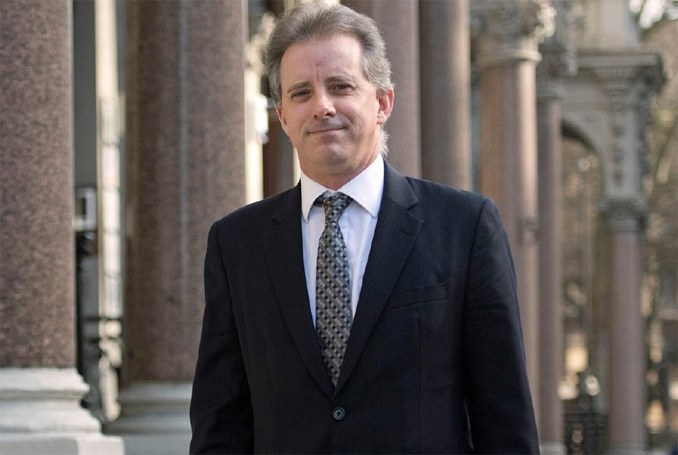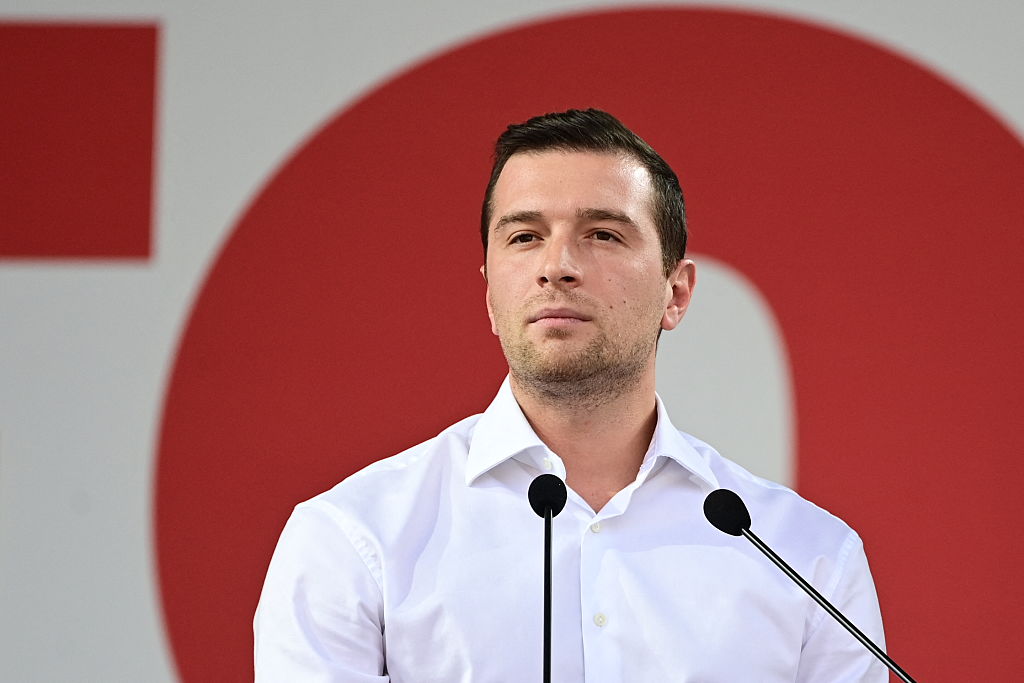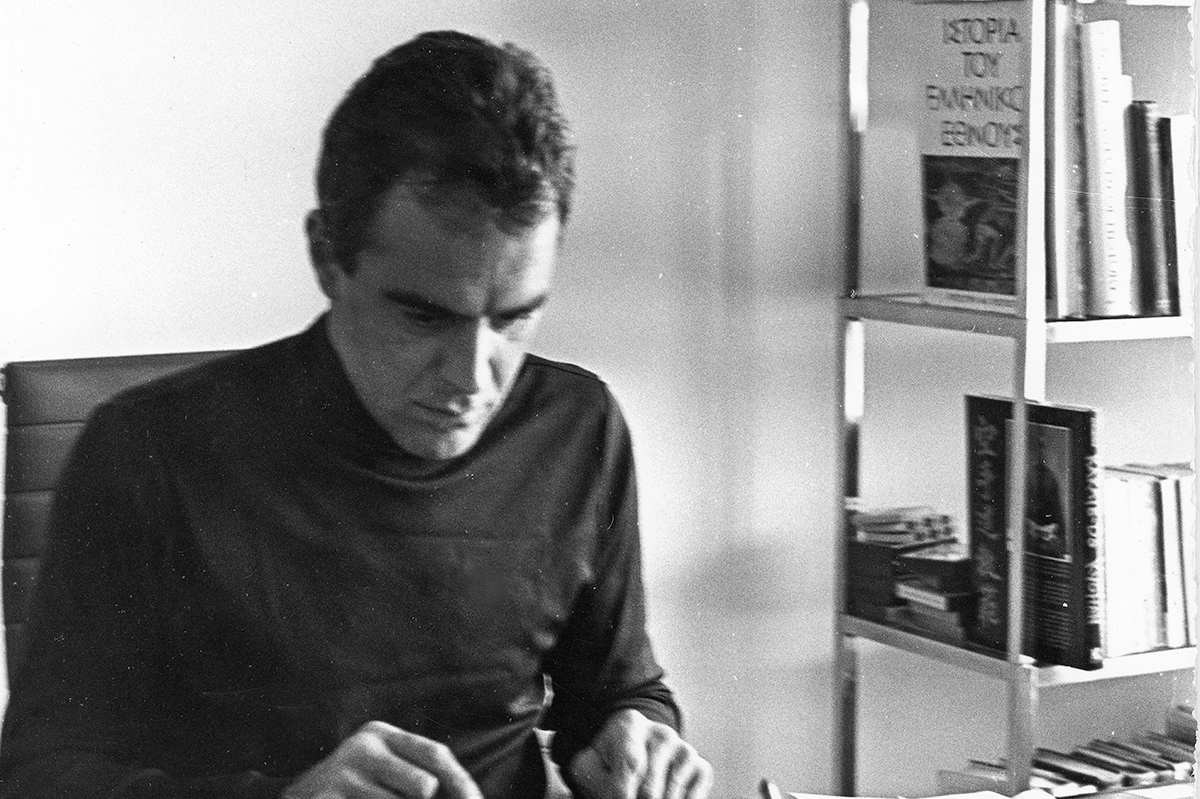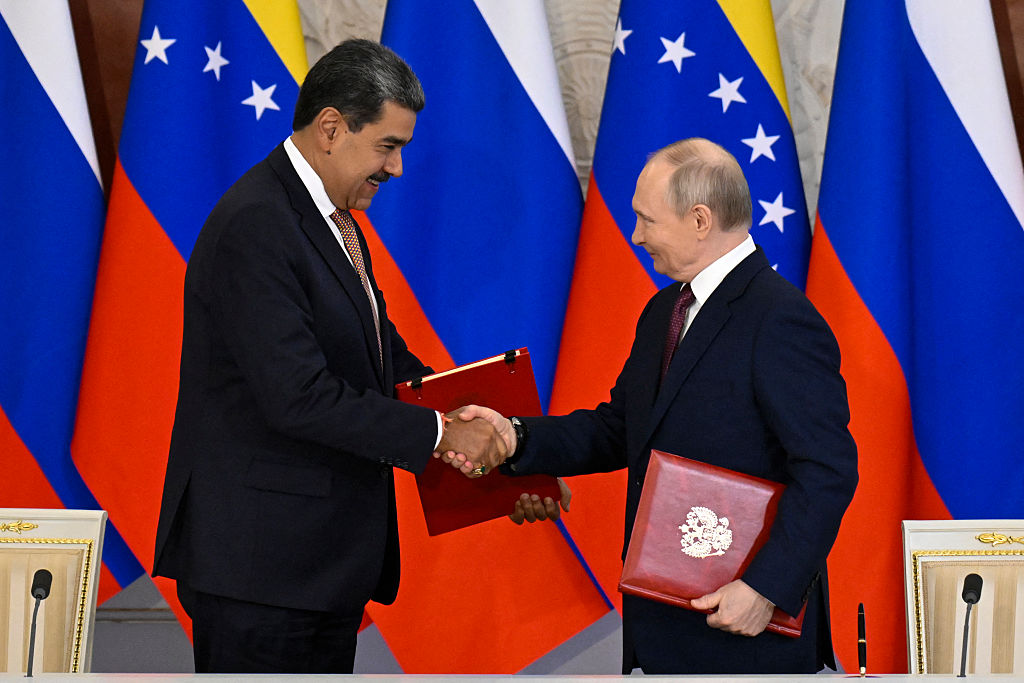The Daily Telegraph this week has a ‘scoop’ about the UK government giving permission for the Mueller inquiry to talk to former MI6 officer Christopher Steele about his evidence, which said Donald Trump was compromised by the Kremlin. The Telegraph story certainly sets the mood for President Trump’s state visit to Britain in 11 days’ time, and has some important new details, but it is not quite an exclusive. I wrote in The Spectator a year ago that Mueller’s team had been in the UK in late 2017 to question Steele, a meeting that was set up ‘through official channels’. Nevertheless, one of the sources I quoted said that in general ‘Mueller’s team… weren’t happy with the level of cooperation they were getting’ from the British government. Steele himself was said to feel that the government and his old employer, MI6, had abandoned him because they were anxious not to offend the President.
What happened in 2017 might be old news, especially now that Mueller has completed his report. A more urgent question for the British government is whether they will cooperate with efforts by President Trump and his allies to get a ‘reckoning’ for what they call ‘the Russia hoax’.
On Twitter, Trump has called Steele a ‘failed spy’ paid by ‘crooked Hillary’ to write a ‘phony dossier’. A dossier Trump believes gave the FBI what they needed for warrants to ‘spy’ on his campaign: ‘illegal’ acts that led him to fire James Comey, which led in turn to the Mueller inquiry. Trump wants an investigation of the investigators – and under the attorney general, Bill Barr, he is getting one. The Associated Press reports that Barr is working with the FBI and the CIA to examine ‘the origins of the Russia investigation’.
In fact, this is only one of three US government inquiries into the Russian investigation. The last attorney general, Jeff Sessions, ordered one before he was fired in a last humiliation. Sessions had appointed a federal prosecutor from Utah named John Huber who, a year on, has yet to report. Huber may be the most silent man in Washington, so little has been seen or heard of him. Perhaps newspapers should offer a prize to anyone who spots Huber around the city – like the newspaper in Greene’s Brighton Rock giving 10 guineas to anyone who challenged their reporter with the words: ‘You are Mr Kolley Kibber. I claim the Daily Messenger prize.’ Trump’s critics say the Sessions and Barr inquiries are cynical attempts to turn the accusations about the Trump campaign and Russia back on the accusers. The existence of an official inquiry, or three, certainly helps Trump to carry on tweeting that he was the victim of an ‘illegal takedown’ by the ‘Deep State’ and Hillary supporters. More red meat for Fox News and Trump’s supporters.
Will Trump raise this with the British prime minister – whoever that may be – on his visit in June and what will he ask for? Details of what Britain gave the US under the ‘Five Eyes’ intelligence sharing agreement? More questioning of Steele? Steele’s extradition? Trump’s allies in Congress have already raised the possibility that Steele might face criminal charges. The third inquiry into the Russia investigation is led by the DoJ’s Inspector General, Michael Horowitz. This might be seen as a more bureaucratic, less political exercise. Still, Horowtiz has said he will review how the FBI handled Steele’s dossier; he has probably already asked the British government for permission to speak to the spy. Steele might be more inclined to cooperate with this inquiry rather than the other two.
Trump maintains that he was ‘exonerated’ by Mueller’s report. He wasn’t. Mueller said only that he could not ‘establish’ – that is prove – that the Trump campaign conspired with Russia. On page 79 of the second part of the Mueller report (the part about obstruction of justice) there is a passage that’s worth quoting at length:
‘[T]he president had a motive to put the FBI’s Russia investigation behind him. The evidence does not establish that the termination of Comey was designed to cover up a conspiracy between the Trump Campaign and Russia: As described in Volume I, the evidence uncovered in the investigation did not establish that the president or those close to him were involved in the charged Russian computer-hacking or active-measure conspiracies, or that the president otherwise had an unlawful relationship with any Russian official. But the evidence does indicate that a thorough FBI investigation would uncover facts about the campaign and the president personally that the president could have understood to be crimes or that would give rise to personal and political concerns.’

























